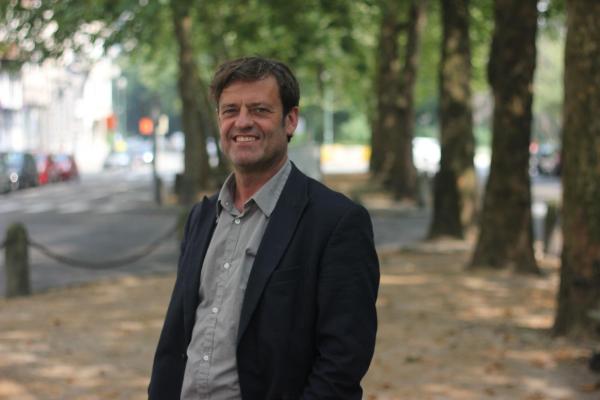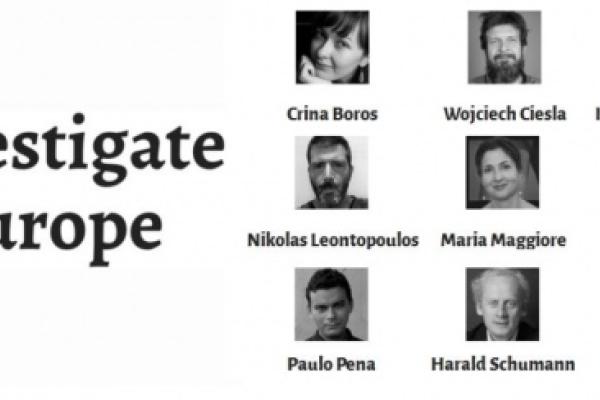“In recent decades, citizens – both intellectuals and ‘ordinary’ citizens – in Western European democracies have gained their independence from political movements, parties or governments. They’ve succeeded in emancipating themselves.”
During elections, such ‘liberated’ citizens increasingly start ‘shopping’, often leading to very surprising election results. Parties split up and the political landscape is becoming ever more fragmented. This in turn makes it increasingly difficult to form majorities or conduct a clear policy. In many Western European countries elections result ever more in political earthquakes.
On the other hand, these same political parties and organisations have ever less control over these citizens. Their membership numbers are falling down rapidly. Also their politically biased mainstream media are disappearing, making way for independent media in a free market. This way, emancipated citizens no longer get their information through party-linked papers or party meetings. They now get them from so-called liberated media, which in many cases have indeed cut their links with parties or political movements.
Political parties do everything to get in the media and have a whole battery of communication advisers. The battle for the voter is fought more and more in the media. To a great many people, television is the only source of information. Now, you can hardly say that television is giving citizens in-depth information. News broadcasts are all about flashy information and are packed with one-liners instead of political views. Much attention is being paid to minor issues. One consequence is that citizens often know all the names and special habits of family members and pets of politicians. But please don’t ask them for the politician’s view on society.
Freedom of information
In a democracy information must be free. That is fundamental. ‘Freedom of speech’ and ‘freedom of press’ are in the 1st Amendment of the American constitution for a good reason. More information in a free market is not the same as freedom of information. The information in a free media market is filtered according to market economy criteria. First of all, we are given mainly cheap news. The more expensive and complex news, such as investigative journalism, background information, in-depth information, … is not part of the mass media’s core business. Then there are also subjects that commercial media are hardly interested in. Investigative journalism reports on the European Union, for instance, are a rarity because they are – according to marketers – not ‘sexy’. But also local town and municipal authorities have far too few journalists looking over their shoulders.
Apparently, commercialised media feel less socially responsible. Their mission is shifted to profit maximisation. Their primary objective is no longer informing the citizen and explaining social phenomena, but increasing circulation figures, sales and – thus – their profit. In theory there is nothing wrong with this and I know I am not original here. But the fact that media do not consider themselves any longer – or to a far lesser extent – a major player in a democracy, is from a democracy’s point of view alarming.
What are the indications for this shift in mindset of commercial media companies?
Media companies invest a lot in technology (printing businesses, websites, mobile applications, etc.) and relatively far too little in journalism. Editorial offices, for instance, are given ever less manpower. The journalist’s output must be higher (delivering three articles per day compared to one in the past). There is no room for refresher courses or specialisation. The wages paid to freelancers are nothing to write home about. And many of these ‘self-employed’ journalists are in dodgy statutes (temporary contracts, day contracts) and actually only pseudo-independent.
Upon collective dismissals, it are mostly the elder, more experienced journalists that are sacked. As a result, there are major holes in the memory of an editorial office. And also the much-needed support to young journalists is becoming precarious.
The slimming down of editorial offices contrasts sharply with the ever increasing communication and lobbying expenditures from the industry.
A kind of ‘de-professionalising’ may be the result. The difference between professional journalists and citizens is becoming smaller. Quality checks are no longer made internally, but outsourced. Ever more websites are popping up that focus on retrieving faults in the media.
Editors cannot be missed on the work floor. There are deadlines all the time because websites must bring news round the clock. Convincing chief editors of another, less obvious subject requires a lot of persuasiveness. As a result, journalists no longer do real journalistic work, but merely ensure superficial press coverage swayed by the issues of the day. This is a general complaint among journalists. “If you don’t have journalism, you don’t have a democracy”, said John Nichols (co-author of The Death and Life of American Journalism) during a lecture at the Philip Merril College of Journalism. I fear indeed that in Western society a fundamental pillar of democracy is showing decay of concrete.
The growing information inequality cannot be denied. An elite of 5% has never been as well informed as now thanks to international forums and websites. But an ever larger group (30%) of the population threatens to become ever less informed, dixit David Frum, in a former life text writer for George W. Bush.
Tomorrow’s journalist is a liberated journalist
To ensure the free flow of free information within a commercial free market, journalists should emancipate themselves more from the structure (media company) in which they operate, analogous to the liberation of citizens. Could, in this context, freelance journalists be the journalists of the future? For the ideal is a journalist who can choose his subject in all liberty and has the time and, if needed, the resources to explore his subject in depth. But for this, some fundamental conditions must be fulfilled.
An essential condition, obviously, is that there is a set of legal conditions that sufficiently protect journalists both legally and practically. First of all, the constitution must guarantee, obviously, the freedom of speech and the freedom of press. At the same time, the government must ensure transparency and take the Freedom of Information Act (WOB) to heart.
WOBbing.eu is a site that bundles the forces and know-how of European journalists on Freedom of Information issues and organises trainings on it. The Freedom of Information Act has already changed journalism in many countries. It has added a powerful tool to the arsenal already available to reporters. Data-driven journalism based on public information made available through the freedom of information legislation will be an important phenomenon in tomorrow's journalism.
Journalists must be given the space and time needed to explore a subject in depth. They must be given the opportunity to specialise. Society needs background information and more explanation on news facts from journalists that fully master the subject. This can be realised, among others, by giving journalists the chance to follow additional courses at least once a year. In many cases, not even this is possible now. A bit strange, don’t you think, for companies trading in information? Coaching and exchange programmes, congresses, seminars, etc. should be obvious for people who have knowledge as their basic material.
In an increasingly complex society, specialisation is essential. Citizens need background information and explanation. Shouldn’t journalism be, more than anything else, about explaining difficult matters in an understandable manner? This is absolutely essential. But it requires study. Here and there, this type of emancipated journalist is coming to the surface. In the Netherlands, you have someone like Geert Mak, who decided to put the history of Europe to book and, later, to make a documentary series about it. He did this on his own and with phenomenal international success. The Brit Robert Fisk is another fine example. Since many years, he has specialised himself in the Middle East. Fisk has become a brand of his own. Personal branding is now possible thanks to new social media such as Facebook, Linkedln, Twitter or by creating one's own blog or website. Of course, the journalist’s independence an credibility are crucial here. Although Fisk works for The Independent (what’s in a name), he is considered independent by everyone (even by Osame bin Laden).
Often, journalists miss that first step. Entrepreneurship is not really in the genes of journalists. An emancipated journalist is an entrepreneur who also looks for alternative ways of financing. Crowd funding, non-profit funding (like journalismfund.eu and the Pascal Decroos Fund), sponsoring or micro-payment are elements that journalists of the future will have to deal with if they want to do their thing in complete independence. But, above all, they can – thanks to the new technologies – enter into direct contact with their public. More than ever, journalism will become a dialogue with the general public enabled by new technologies. But for this, obviously, you must also have something to tell.
By Ides Debruyne, managing director of Journalismfund.eu
Photo ©Toumaj Khakpour
Read the Dutch version on De Nieuwe Reporter

